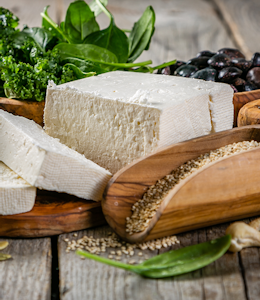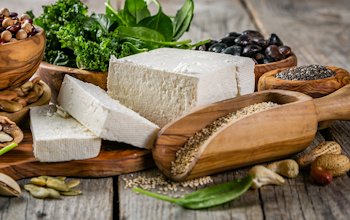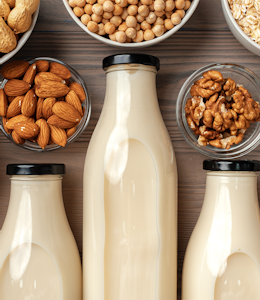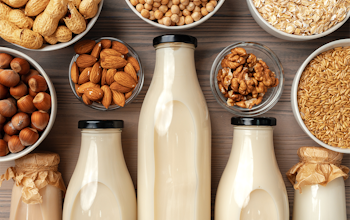Everything you need to know about plant-based diets
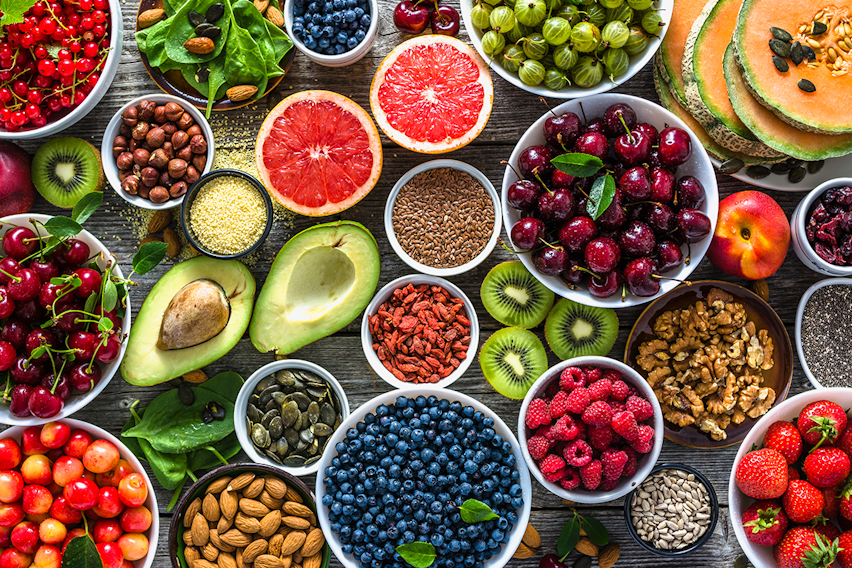
In the past few years the popularity of plant-based (also erroneously referred to as vegan) diets has sky-rocketed, creating more demand for plant-based and vegan food products, at a rate that has been difficult for legislation and even guidance around the labelling of these products to keep up with.
In short, there is much confusion around exactly what constitutes a plant-based product, how it differs from a vegan product and what the different types of plant-based diet are. Knowing these things makes it easier to label and market your products to make them attractive to the right consumer. So we’ve put together this little guide...
What is a plant-based diet?
Plant-based diets are dietary patterns that focus on a high intake of foods derived from plants. Foods such as these:
- Fruits & Vegetables
- Legumes (like lentils and chickpeas)
- Wholegrains
- Pulses
- Nuts
- Seeds
- Oils
Is plant-based the same as vegan?
It is a common misconception that the plant-based diet is strictly vegan or vegetarian. People who follow a mainly plant-based diet may still choose to eat small amounts of animal foods such as meat, poultry, fish, eggs and dairy products.
This is often referred to as semi-vegetarian, flexitarian or pescatarian. Whilst not always the case, many people following a plant-based diet do so for health reasons, whilst many people following a vegan diet do so for ethical reasons.
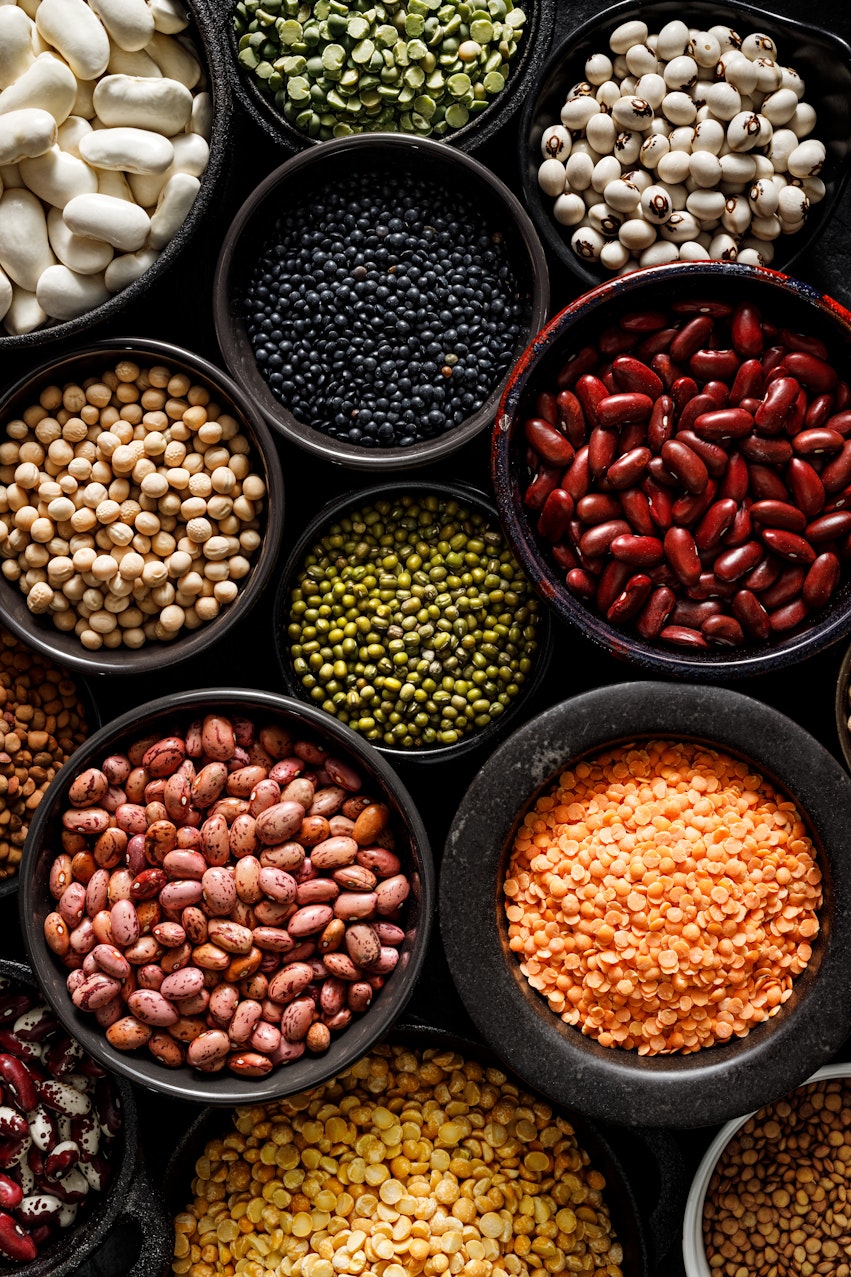
What are the different types of plant-based diets?
Plant-based diets are not a one-size fits all. Similarly to vegetarian diets, there are different levels and flexibilitIes of what is and isn’t eaten.
You may also be interested in…


You may also be interested in…
What’s the difference between vegetarian and vegan?
ReadBelow are the main types of plant-based diets:
Semi-vegetarian or flexitarian
This type of diet includes vegetables, legumes, nuts, whole grains, seeds, pulses and nuts.
- It also includes eggs and dairy (butter, milk, cream and cheese)
- It may include small amounts of meat, poultry, fish and seafood
Pescatarian
This type of diet includes vegetables, legumes, nuts, whole grains, seeds, pulses and nuts.
- It includes eggs and dairy
- It includes fish and seafood
- It excludes meat and poultry
Ovo-vegetarian
This type of diet includes vegetables, legumes, whole grains, seeds, pulses and nuts.
- It includes eggs
- It excludes meat, poultry, Fish, shellfish (Molluscs and Crustaceans) and dairy
Lacto-vegetarian
This type of diet includes vegetables, legumes, nuts, whole grains, seeds, pulses and nuts.
- It includes dairy
- It excludes meat, poultry, fish, shellfish (Molluscs and Crustaceans) and Eggs
Vegetarian (lacto-ovo vegetarian)
This type of diet includes vegetables, legumes, nuts, whole grains, seeds, pulses and nuts.
- It includes Eggs and dairy
- It excludes meat, poultry, fish and shellfish (Molluscs and Crustaceans)
Vegan
This type of diet includes vegetables, legumes, Nuts, whole grains, seeds, pulses and Nuts.
- It excludes all meat, poultry, Fish, shellfish (Molluscs and Crustaceans), Eggs and dairy
Just how big is the increase in plant-based diets?
The interest in plant-based diets has increased significantly over the past few years. According to the Vegan Society, in 2021 20% of Brits had reduced their meat intake since the start of the Covid-19 pandemic, and 12% had reduced their dairy and eggs intake. There was also a record number of participants in Veganuary (the campaign that encourages people worldwide to try following a vegan diet for the month of January) in 2022, with over 629,000 people signing up - a huge jump from the 250,000 taking part in 2019.
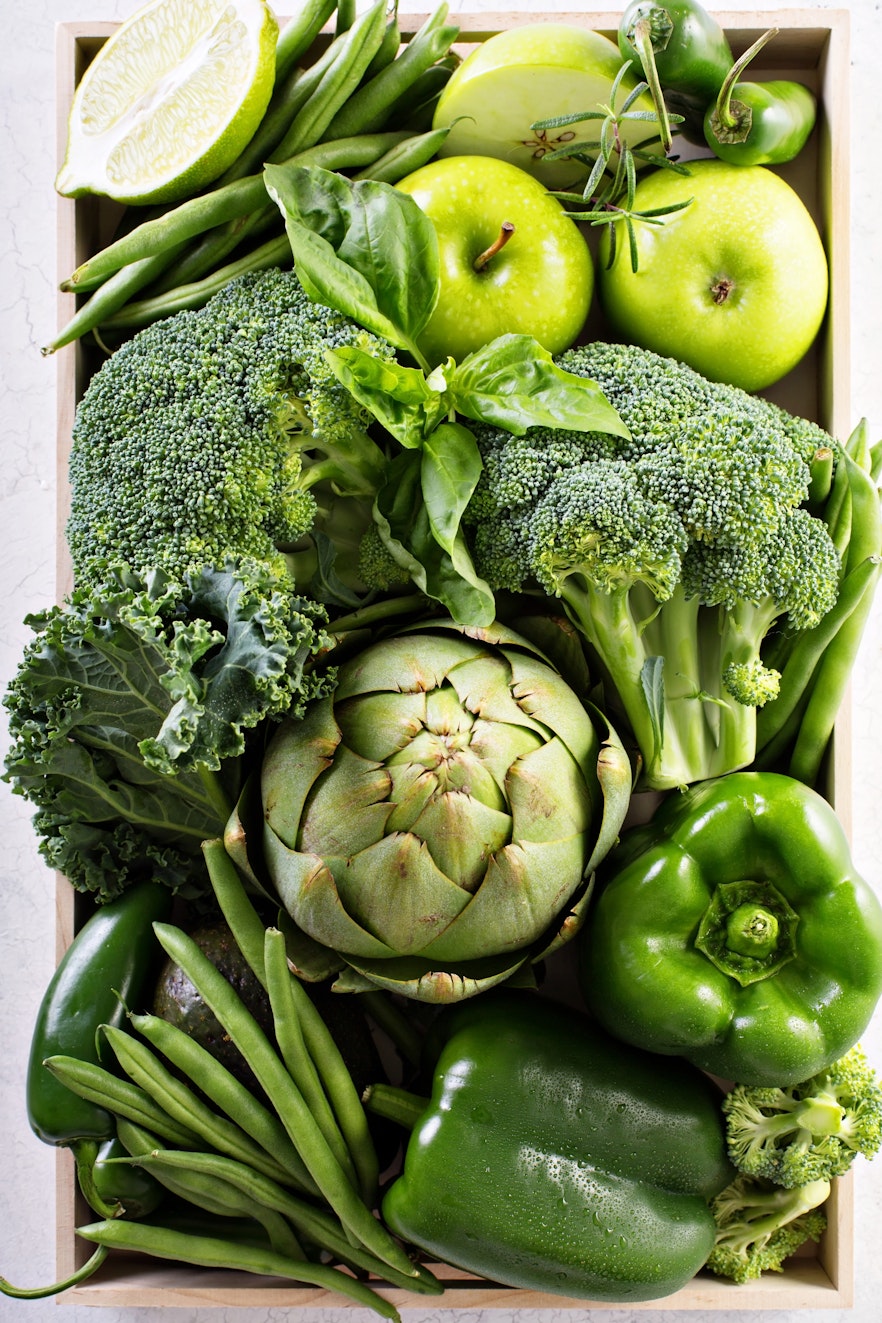
You can find a selection of statistics about veganism, both in the UK and around the world here and more information about Veganuary here.
The rise in popularity of plant-based diets, has led to an increase in demand for plant-based alternatives to traditional animal-based products. As a result, there are now a vast amount of plant-based options available, including plant milks, cheeses, meats, and eggs. Because of this increased availability, adopting a more plant-based way of eating is easier than it previously has been.
What are the Benefits of a Plant-Based Diet?
A lot of plant-based food is non-processed, particularly due to the inclusion of wholegrains and fresh fruits and vegetables.
These foods are linked to a lowered risk of heart disease (according to the British Heart Foundation)), and they also contain much higher levels of fibre and vitamins and lower amounts of saturated fats and sugar than processed foods.
This is a healthy way of eating, though you do not need to follow an entirely plant-based diet to enjoy the benefits of fully non-processed food.
How do you know if a product is plant-based or vegan?
You may also be interested in…
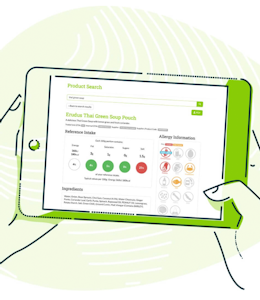
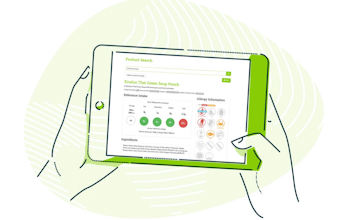
You may also be interested in…
Solutions Spotlight: Allergen & Nutritional Data Search
ReadMany products might be named ‘Plant-based’ or ‘Vegan’ but these names are not regulated or held to legislation. As with all products, the best way of finding out what is in it is to check the ingredients on the back of pack or via a data platform such as Erudus.
Because meat, Egg and dairy derivatives might not be under recognisable names (such as Albumin for Egg), it can be tricky just relying on ingredients lists).
One of the product specifications on Erudus is whether a product is suitable for a Vegan or Vegetarian diet.
On both the Erudus Product Search and Allergen & Nutritional Data Search you can look to see whether icons for Vegans and Vegetarians are green or greyed out.
Fish, Crustaceans, Molluscs, Eggs and Milk are animal-derived products that are also among the 14 major food allergens and legally their presence must be declared on food products - Erudus uses allergy icons to signify if these ingredients are present in a food product.
You may also be interested in…


You may also be interested in…
